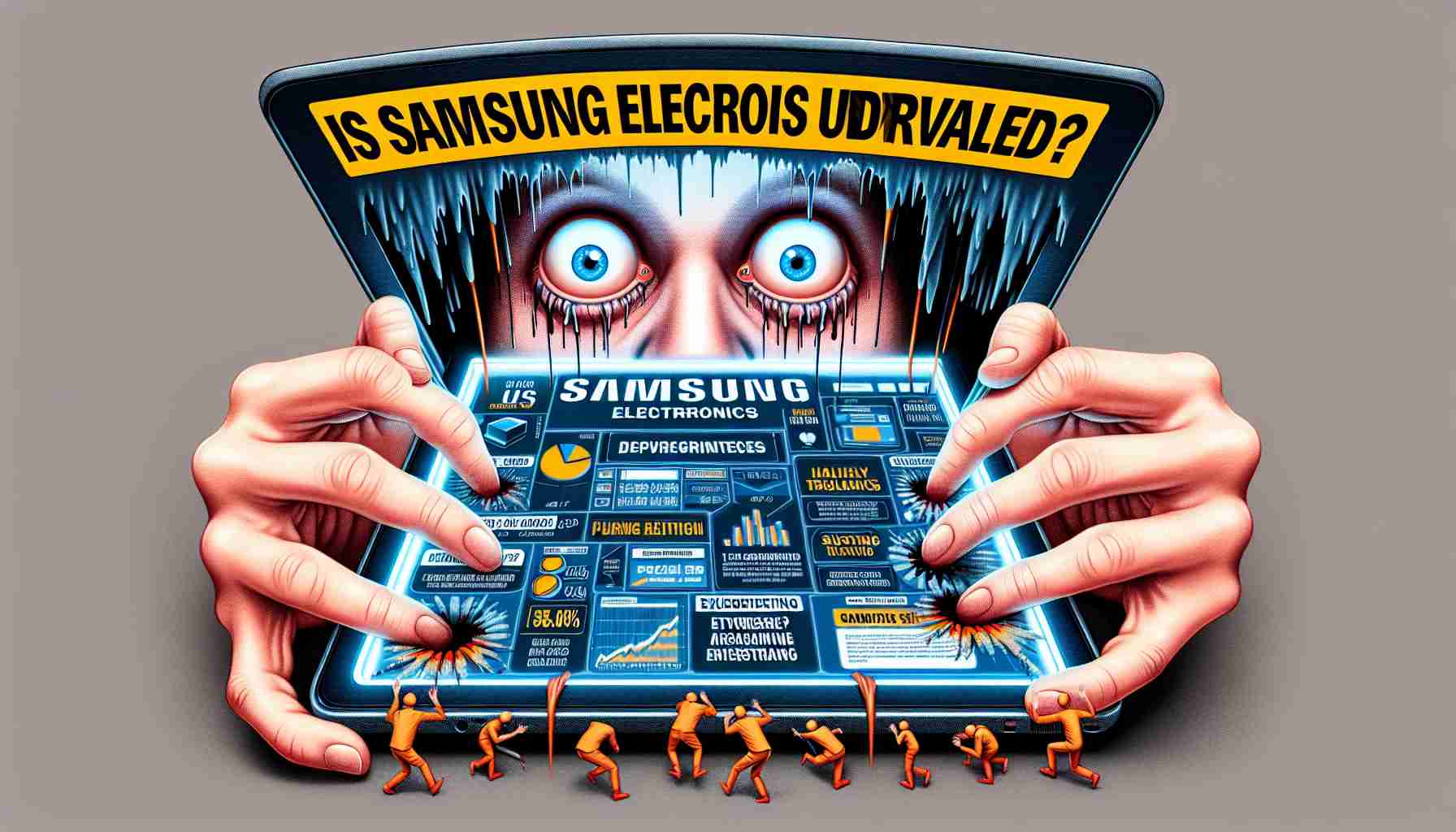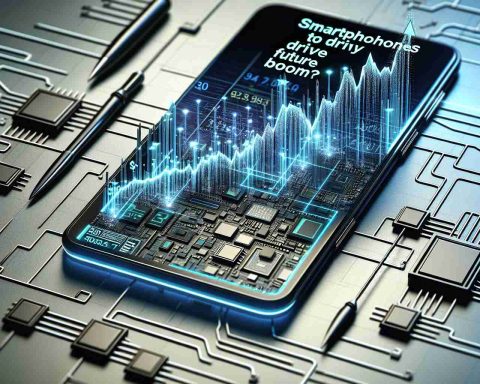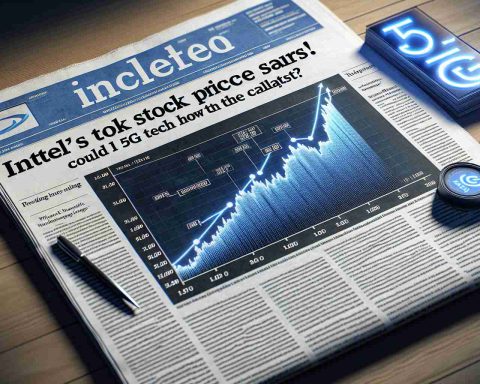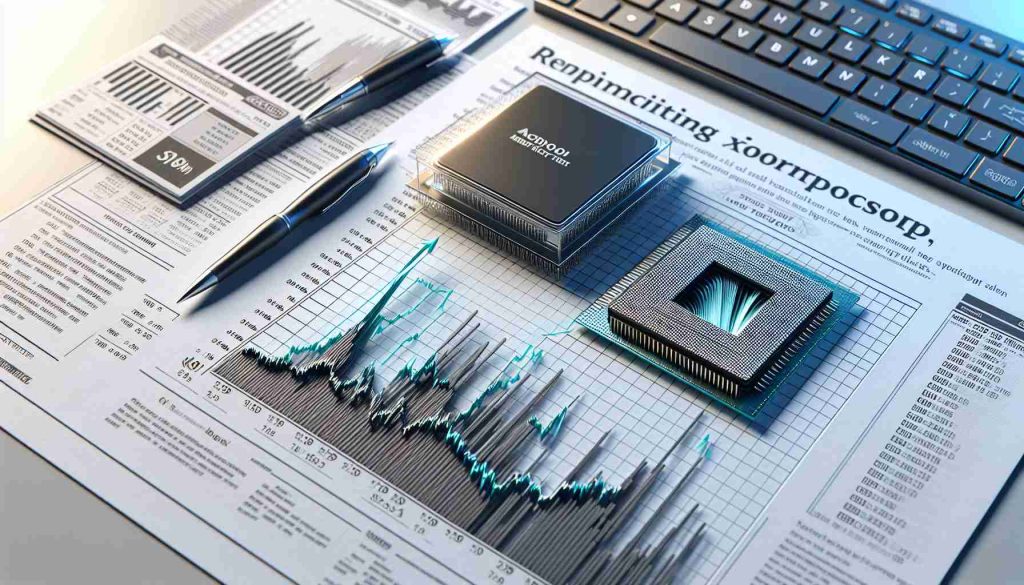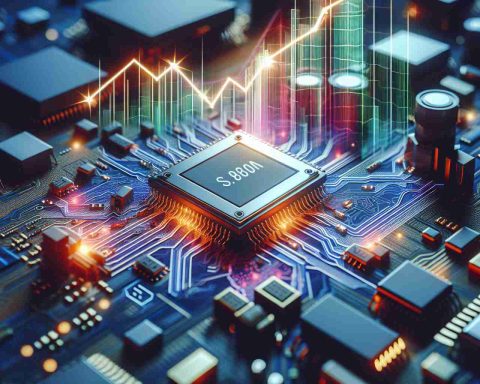For investors looking to gauge the value of Samsung Electronics (KRX:005930), a surprising revelation emerges from a recent equity analysis. It turns out the company’s shares may be significantly undervalued. By utilizing a complex analytical method called the Discounted Cash Flow (DCF) analysis, experts have calculated Samsung’s intrinsic share value at ₩104,947. Compare this to the current market price of ₩56,300, and it’s evident the stock is undervalued by about 46%.
Understanding the DCF Model:
The DCF model involves projecting the future cash flows of a company and discounting them to present value. For Samsung, this was done using a two-stage model that accounts for varying growth rates. Initially, analysts estimate growth for ten years, tapping into previous cash flow data when necessary. For the second stage, a more stable growth pattern is assumed, acknowledging that rapid growth often slows over time.
Present and Terminal Values:
Actual future cash flows were predicted and discounted, resulting in a present value of ₩294 trillion, while a Terminal Value was calculated to be ₩419 trillion. Combining these provides a Total Equity Value of ₩713 trillion, highlighting the discrepancy from its market price.
What It Means for Investors:
For shareholders, this analysis suggests potential for greater value realization. While there are inherent assumptions and limitations with DCF (like ignoring industry cyclicality or future capital needs), the analysis provides a solid foundation for investment decisions. Whether or not Samsung Electronics will reach the projected fair value remains uncertain, yet the current undervaluation presents a unique opportunity for potential investors.
The Hidden Impact of Samsung’s Undervalued Stock on Global Markets
Global Implications of Samsung’s Valuation
While the conclusion that Samsung Electronics’ shares are undervalued by 46% is significant for investors, the broader implications for global markets and communities are just as profound. Samsung Electronics is a major player in the global technology industry, and its valuation affects not only investors but also the economies and tech markets worldwide.
The Innovation Ripple Effect
The undervaluation of Samsung’s stock can impact its research and development endeavors. Samsung is a renowned leader in innovation, particularly in fields like semiconductors and consumer electronics. If the market recognizes its undervaluation and more investors buy in, the company might be able to allocate more resources towards pioneering technologies, thus sparking advancements across various sectors. This could enhance technological solutions and infrastructure in countries heavily relying on Samsung’s innovations.
Effects on Employment and Local Economies
As one of the largest employers in South Korea, Samsung Electronics directly influences employment rates and local economies. Its market performance can affect hiring, salaries, and the overall economic health of the region. A market correction reflecting its fair intrinsic value could bolster Samsung’s ability to expand its workforce and infrastructure, thus benefiting surrounding communities through increased employment and improved economic conditions.
Advantages and Disadvantages
The potential revaluation of Samsung’s stock has notable advantages:
– Growth Opportunities: Realizing a 46% increase in share value could enable Samsung to invest more in high-risk, high-reward opportunities like AI, 5G technologies, and green tech solutions.
– Investor Confidence: A revised stock value can significantly boost investor confidence, potentially attracting more capital inflow and stabilizing the stock.
However, there are a few disadvantages:
– Inherent Risks: The reliance on models like DCF includes assumptions that may not hold true in varying market conditions.
– Market Volatility: Sudden shifts in valuation can lead to increased market volatility, impacting not only Samsung’s stock but also affecting related markets.
Interesting Facts and Controversies
– Despite being a tech giant, Samsung Electronics has faced controversies, such as antitrust issues and competition lawsuits. These controversies could influence analyst models and investor perceptions.
– Samsung’s expansive product range, from home appliances to advanced computing chips, means its market valuation has a broad impact, touching numerous aspects of daily life worldwide.
Questions and Answers
What does this mean for consumers?
If Samsung’s stock is revalued, the company may have more funds for innovation, leading to new products and services that enhance consumer lifestyles. However, consumers might face price adjustments as a result of a recalibrated business strategy.
How could Samsung’s undervaluation affect international partnerships?
Strategic international partnerships might become more appealing or viable if Samsung’s financial health is perceived as robust. This could foster collaborative projects that drive technological advancements and access to new markets.
To further explore these dynamics, check out Reuters and BBC for the latest news on global market shifts and corporate valuations.

